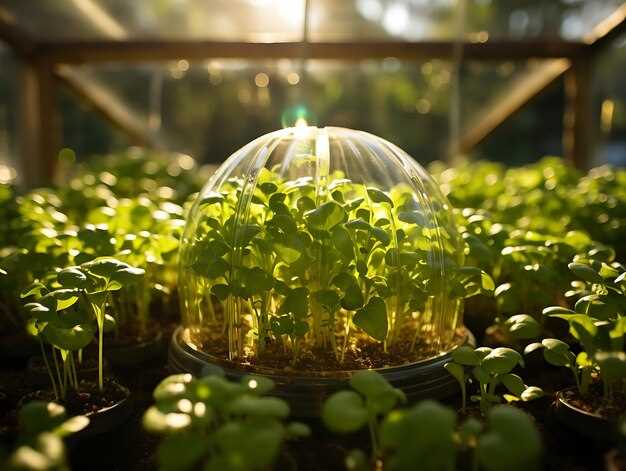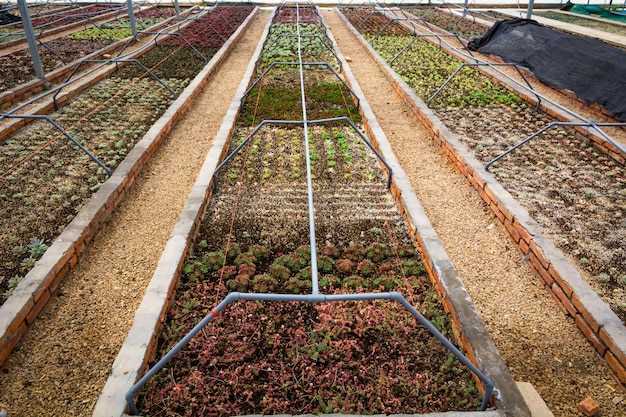
In today’s rapidly changing world, the need for sustainable and resilient farming practices has become more pressing than ever. As we face the challenges of climate change, population growth, and diminishing natural resources, it is crucial to develop innovative approaches that can ensure the long-term viability of our agricultural systems. This is where agroecology comes into play.
Agroecology, often referred to as ecological agriculture, is a holistic approach to farming that seeks to integrate ecological principles and practices into agricultural systems. It recognizes the interconnectedness of all elements within an ecosystem and aims to create a harmonious balance between human needs and the natural environment. By harnessing the power of biodiversity, soil health, and ecological processes, agroecology offers a promising pathway towards a more sustainable and resilient future.
At its core, agroecology emphasizes the importance of working with nature rather than against it. Instead of relying on synthetic inputs and chemical interventions, agroecological farmers strive to enhance natural processes and promote biological diversity. This means adopting practices such as crop rotation, cover cropping, and the use of natural predators to control pests. By nurturing healthy soils and promoting biodiversity, agroecology not only improves the resilience of farming systems but also enhances their productivity and profitability in the long run.
Furthermore, agroecology recognizes the social and economic dimensions of sustainable agriculture. It emphasizes the importance of empowering farmers and local communities, promoting social equity, and fostering resilient food systems. By prioritizing local knowledge, traditional practices, and farmer-led innovation, agroecology offers a more inclusive and participatory approach to agriculture. It seeks to create a food system that is not only environmentally sustainable but also socially just and economically viable.
As we navigate the challenges of the 21st century, agroecology presents a compelling vision for the future of farming. By embracing ecological principles and practices, we can build resilient agricultural systems that are capable of withstanding the shocks and stresses of a changing climate. Through sustainable and regenerative farming practices, we can ensure food security, protect biodiversity, and promote the well-being of both people and the planet. The journey towards a thriving agricultural future starts with agroecology.
Understanding Agroecology: A Holistic Approach to Farming
In this section, we will explore the concept of agroecology, a comprehensive and interconnected approach to farming that goes beyond traditional methods. Agroecology encompasses a wide range of practices and principles that aim to create sustainable and resilient agricultural systems.
Agroecology takes into account the intricate relationships between plants, animals, humans, and the environment, recognizing that they are all interconnected and interdependent. It emphasizes the importance of biodiversity, soil health, and ecological balance in agricultural systems.
By adopting agroecological practices, farmers can minimize the use of synthetic inputs such as pesticides and fertilizers, and instead focus on enhancing natural processes and ecological interactions. This approach promotes the use of organic and regenerative farming techniques, which not only benefit the environment but also contribute to the production of healthier and more nutritious food.
Agroecology also emphasizes the importance of local knowledge and community involvement in decision-making processes. It encourages farmers to collaborate and share their experiences, fostering a sense of collective learning and innovation. This holistic approach to farming recognizes the social, cultural, and economic dimensions of agriculture, aiming to create sustainable and resilient food systems that can adapt to future challenges.
Overall, understanding agroecology is crucial for building a more sustainable and resilient future in agriculture. By embracing this holistic approach, farmers can contribute to the preservation of biodiversity, the protection of natural resources, and the promotion of food security and social equity.
The Benefits of Agroecology: Environmental and Social Impacts
Agroecology offers numerous advantages that positively impact both the environment and society. By adopting agroecological practices, farmers can contribute to the preservation of natural resources, enhance biodiversity, improve soil health, and mitigate climate change. Additionally, agroecology promotes social equity, empowers local communities, and fosters sustainable livelihoods.
Environmental Impacts
One of the key benefits of agroecology is its positive impact on the environment. By utilizing organic and regenerative farming techniques, agroecological systems minimize the use of synthetic inputs such as pesticides and fertilizers, reducing the pollution of water bodies and soil. This approach also promotes the conservation of biodiversity by creating habitats for beneficial insects, birds, and other wildlife, which in turn helps control pests naturally.
Furthermore, agroecology emphasizes the importance of soil health. Through practices like crop rotation, cover cropping, and composting, agroecological farming systems enhance soil fertility, structure, and water-holding capacity. This not only improves crop productivity but also reduces soil erosion and enhances the resilience of agricultural ecosystems in the face of climate change.
Social Impacts
Agroecology has significant social benefits as well. By prioritizing local and small-scale farming, agroecological systems empower farmers and rural communities, fostering self-sufficiency and food sovereignty. This approach promotes the use of traditional knowledge and local seed varieties, preserving cultural heritage and enhancing community resilience.
Moreover, agroecology encourages farmer-to-farmer knowledge sharing and collaboration, creating strong social networks and promoting collective action. This not only strengthens community bonds but also enables farmers to collectively address challenges such as market access, resource management, and policy advocacy.
| Environmental Impacts | Social Impacts |
|---|---|
| Minimizes use of synthetic inputs | Empowers farmers and rural communities |
| Promotes biodiversity conservation | Fosters self-sufficiency and food sovereignty |
| Enhances soil health and fertility | Preserves cultural heritage and traditional knowledge |
| Reduces soil erosion and enhances resilience | Facilitates farmer-to-farmer knowledge sharing |
Enhancing Biodiversity: Agroecology’s Role in Preserving Ecosystems
In this section, we will explore the crucial role of agroecology in the preservation of ecosystems by enhancing biodiversity. Agroecology, as a holistic approach to farming, plays a significant role in maintaining and promoting the diversity of plant and animal species within agricultural landscapes.
By adopting agroecological practices, farmers can create and maintain habitats that support a wide range of species, including beneficial insects, birds, and mammals. These practices prioritize the use of natural pest control methods, such as the promotion of predator populations and the planting of diverse crop varieties, which reduces the reliance on chemical pesticides and fosters a more balanced ecosystem.
Agroecology also emphasizes the importance of preserving and restoring natural habitats within agricultural landscapes. By incorporating elements such as hedgerows, field margins, and riparian zones, farmers can provide shelter, food, and breeding grounds for a variety of species. These habitats serve as corridors for wildlife movement, allowing for gene flow and maintaining healthy populations.
Furthermore, agroecology recognizes the interconnectedness of ecosystems and the vital role of biodiversity in ecosystem functioning. By promoting diverse crop rotations, intercropping, and agroforestry systems, farmers can enhance soil fertility, reduce erosion, and improve water retention. These practices not only benefit agricultural productivity but also contribute to the overall health and resilience of ecosystems.
In conclusion, agroecology’s focus on enhancing biodiversity within agricultural landscapes is crucial for the preservation of ecosystems. By adopting agroecological practices, farmers can create habitats that support a wide range of species, promote natural pest control, preserve and restore natural habitats, and improve overall ecosystem functioning. This holistic approach to farming is essential for building sustainable and resilient agricultural systems for the future.
Regenerative Agriculture: Restoring Soil Health through Agroecology
In this section, we will explore the concept of regenerative agriculture and its role in restoring soil health through the principles of agroecology. We will delve into the importance of adopting sustainable farming practices that promote the regeneration of soil ecosystems, enhancing their resilience and long-term productivity.
The Essence of Regenerative Agriculture
Regenerative agriculture is a holistic approach to farming that focuses on restoring and revitalizing the health of the soil. It recognizes the interconnectedness of soil, plants, animals, and the environment, and aims to create a harmonious balance between them. By implementing regenerative practices, farmers can improve soil fertility, enhance biodiversity, and mitigate the negative impacts of conventional agricultural methods.
Key Principles of Regenerative Agriculture
Regenerative agriculture encompasses a range of practices that work together to restore soil health. These include minimizing soil disturbance, promoting cover cropping and crop rotation, integrating livestock into farming systems, and utilizing natural fertilizers and pest control methods. By adopting these principles, farmers can rebuild soil organic matter, improve water retention, and reduce erosion, ultimately leading to more resilient and productive agricultural systems.
Through the application of agroecology principles, regenerative agriculture offers a promising solution to the challenges faced by modern farming. By restoring soil health, it not only ensures the long-term sustainability of agricultural systems but also contributes to the preservation of natural resources and the resilience of our future food production.
Climate Resilience: How Agroecology Can Help Farmers Adapt to Changing Conditions
In the face of a rapidly changing climate, farmers around the world are facing unprecedented challenges. Extreme weather events, shifting rainfall patterns, and rising temperatures are all impacting agricultural productivity and threatening food security. In this section, we will explore how agroecology, a holistic approach to farming, can help farmers adapt to these changing conditions and build climate resilience.
Understanding Climate Resilience
Climate resilience refers to the ability of a system, in this case, agricultural systems, to withstand and recover from the impacts of climate change. It involves not only adapting to the current changes but also preparing for future uncertainties. Building climate resilience in agriculture is crucial to ensure food production and livelihoods are not compromised in the face of climate-related challenges.
The Role of Agroecology in Climate Resilience
Agroecology offers a promising solution to enhance climate resilience in farming systems. By promoting biodiversity, soil health, and ecological balance, agroecology helps farmers mitigate the impacts of climate change and adapt to changing conditions. It emphasizes the use of ecological processes and local knowledge to optimize agricultural production while minimizing environmental degradation.
| Benefits of Agroecology for Climate Resilience |
|---|
| 1. Diversification: Agroecology encourages farmers to diversify their crops and livestock, reducing the vulnerability of their systems to climate-related risks. By growing a variety of crops, farmers can better withstand extreme weather events and pests. |
| 2. Soil Health: Agroecological practices focus on improving soil health through organic matter management, cover cropping, and crop rotation. Healthy soils can better retain water, resist erosion, and provide essential nutrients to plants, making them more resilient to droughts and floods. |
| 3. Water Management: Agroecology promotes efficient water management techniques such as rainwater harvesting, drip irrigation, and contour farming. These practices help farmers cope with changing rainfall patterns and water scarcity, ensuring sustainable water use. |
| 4. Knowledge Sharing: Agroecology emphasizes the importance of local knowledge and farmer-to-farmer learning. By sharing experiences and best practices, farmers can collectively adapt to changing conditions and develop innovative solutions to climate-related challenges. |
Overall, agroecology provides a holistic and sustainable approach to farming that can help farmers adapt to the uncertainties of a changing climate. By implementing agroecological practices, farmers can enhance their resilience, protect their livelihoods, and contribute to a more sustainable and food-secure future.
Promoting Food Security: Agroecology’s Contribution to Sustainable Food Production
Ensuring a stable and sufficient food supply is a critical challenge for our society. In this section, we will explore how agroecology plays a vital role in promoting food security by fostering sustainable practices in food production. By embracing agroecological principles, farmers can enhance the resilience and productivity of their agricultural systems, ultimately contributing to a more secure and sustainable food future.
Enhancing Resilience through Biodiversity

One key aspect of agroecology’s contribution to sustainable food production is its emphasis on biodiversity. By promoting diverse crop rotations, intercropping, and the integration of livestock, agroecological systems create a more resilient and robust food production environment. This diversity not only helps to mitigate the risks associated with pests, diseases, and climate variability but also enhances soil health and fertility, leading to increased yields and improved food security.
Empowering Local Communities
Agroecology also plays a crucial role in empowering local communities to take control of their food production and consumption. By promoting small-scale farming practices, agroecology enables farmers to have a direct impact on their food security. Through the use of sustainable farming techniques, such as organic fertilizers and natural pest control methods, farmers can reduce their dependence on external inputs, making their food production more self-reliant and resilient to external shocks. Additionally, agroecology encourages the preservation of traditional knowledge and local seed varieties, fostering cultural diversity and ensuring food security for future generations.
In conclusion, agroecology offers a promising pathway towards achieving sustainable food production and promoting food security. By embracing biodiversity and empowering local communities, agroecological practices contribute to resilient agricultural systems that can withstand challenges and uncertainties. It is through the adoption of these principles that we can build a more secure and sustainable future for our food supply.





